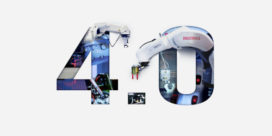Technologies
CoSN2024 Wrap-Up
Read and see highlights of the speakers, topics, and technologies showcased this year.
2024: The year of generative AI
This year marks a significant milestone in integrating advanced AI technologies into educational practices, heralding a new era of teaching and learning.
A Real Show Starter
Many people are talking about virtual reality and its effectiveness in classrooms but few are doing it. Chad Lewis, Director ... Read more
What is the Role of AI in a Smart School?
AI in smart schools is revolutionizing traditional education by introducing innovative technologies to enhance learning experiences. From personalized learning to smart classrooms, AI in education is reshaping learning…
Build back stronger – today. Make the impossible, possible with VR
We’re ClassVR. We’ve been pioneering K-12 classroom technology for almost 20 years. We explore 7 emerging approaches, and how they’re ... Read more
What Technology is Used in Teaching and Learning?
Technology plays a pivotal role in transforming K-12 teaching and learning in the digital age, offering innovative tools that enhance engagement, personalization, and efficiency.
7 principles for AI in education
A new framework intends to guide the edtech industry’s implementation of AI in education in a purpose-driven, transparent, and equitable manner that enables critical tools for personalized and…
Improving literacy through engagement
In this episode of Innovations in Education, Madeleine Mortimore, Global Education Innovation and Research Lead for Logitech details how classroom technologies, if used properly, can increase engagement and…
Transhumanism and AI in education: Revolutionary leap or ethical abyss?
We collectively stand in the beginning stages of academic and technological innovation. Universities and labs across the globe are stirring a revolution. Transhumanism, a philosophy advocating for human…
Closing the gap in school emergency response
As school violence has reached a 20-year high, schools and first responders are feeling more pressure to make sure they’re prepared to respond to and resolve school safety…
How managed services empower edtech in small schools
The ever-present issue with technology is its inevitable obsolescence. No matter how groundbreaking an innovation may be, there always seems to be a superior alternative just a few…
Wayside Publishing to Enhance New and Future Products After Acquisition
FREEPORT, Maine – Wayside Publishing®, the fastest-growing, U.S.-based K–12 world languages publisher, announces the acquisition of Lit®, a leading creator ... Read more
Why education leaders should prioritize asset-based edtech
Since the pandemic began, the number of technologies districts use has nearly tripled, but not all of these tools have been effective. As education leaders review the utility…
ChatGPT is the shakeup education needs
Since its launch in November 2022, ChatGPT has dominated conversations in the media landscape and within the education industry. A key conversation focuses on weighing its benefits versus…
What is a predictive metaverse? The future of guided learning
The word ‘metaverse’ has certainly been used a lot recently, specifically within conversations around the advancement of technologies and the ever-changing landscape of how we work and live.
BenQ Board RP03 Series Recognized as First Smart Board to Achieve Eyesafe® Certification for Low Blue Light
COSTA MESA, Calif. — BenQ, an internationally renowned provider of visual display solutions, is helping to minimize blue light emission ... Read more
New Meridian Names Eileen Shihadeh as Chief Operating Officer
AUSTIN — New Meridian, a nonprofit assessment company committed to advancing quality education for all students, today announced that Eileen ... Read more
SMART Technologies Rolls Out Two New Editions of the ONLY True Multi-User Interactive Display
CALGARY, AB – Today SMART Technologies debuts the latest industry-leading SMART interactive displays for education at the 2023 TCEA Convention ... Read more
Join the revolution: The 4th Industrial Revolution is changing learning
The 4th Industrial Revolution is the current phase of rapid technological change. It is also known as Industry 4.0, and the advent of robotics, artificial intelligence, and automation…



















